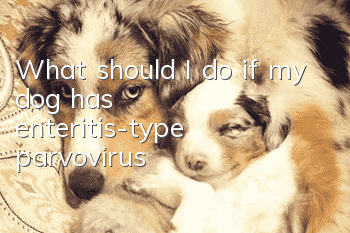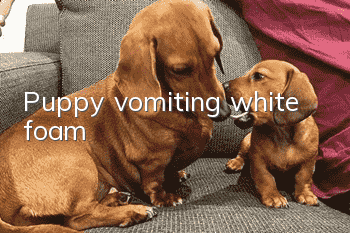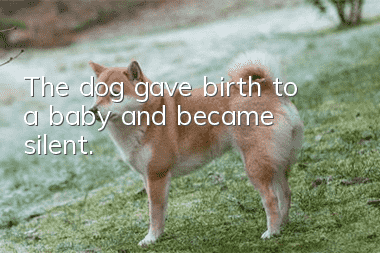What should I do if my dog has enteritis-type parvovirus?

Canine parvovirus gastroenteritis is commonly known as "intestinal inversion". It is caused by parvovirus parasitic in the mucosa of the dog's gastrointestinal tract. It divides and reproduces, causing damage to the gastrointestinal mucosa, causing enteritis with bleeding and infection of the small intestinal mucosa.
Hazards:
It has a high incidence rate, strong contagiousness and high mortality, and is common in puppies.
Symptoms:
Early stage: listless; poor appetite; mild vomiting, fever; soft stool, gray, yellow or milky white with jelly-like mucus;
Late stage: frequent vomiting; severe diarrhea, foul-smelling soy sauce-like or tomato juice-like bloody stools; rapid dehydration, weight loss, sunken eye sockets; messy coat, inelastic skin, cold ears, nose, and limbs, high levels of depression, shock, and death ;
Treatment:
1. After puppies suffer from parvovirus enteritis, treatment should be intravenous rehydration, antidiarrheal, hemostatic, anti-inflammatory, antiemetic and injection of canine parvovirus monoclonal antibodies.
2. Strictly control your diet after the onset of the disease, avoid food and water, and prevent dehydration through infusions and other methods.
Prevention:
1. Isolate the sick dog in time and disinfect the dog’s living environment repeatedly.
2. Vaccination is an effective measure to prevent this disease.
- Why do dogs like to run wildly after taking a bath?
- Why does a dog sleep with his eyes open?
- Common ear canal diseases in dogs
- Why do dogs always lick their butts?
- What are the symptoms of calcium deficiency in dogs? Several ways to improve your dog’s calcium deficiency!
- Why do pet dogs eat grass? Pet owners who don’t know should not misunderstand!
- Can dogs often eat animal offal?
- When can puppies be vaccinated? What should I pay attention to when vaccinating puppies?
- How to improve the dog’s chewing behavior
- What's wrong with the pimples and hair loss on the dog's body?



